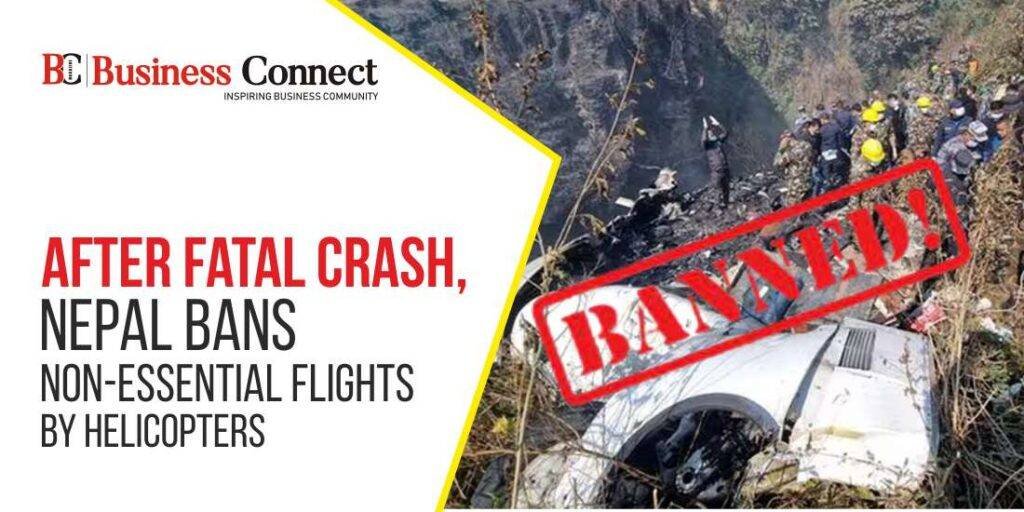After Fatal Crash, Nepal Bans Non-Essential Flights by Helicopters
Written by Sanjay Kumar
News Highlights
- Nepal bans non-essential helicopter flights after the deadly Everest crash.
- Nepal, home to eight of the world’s 14 highest mountain peaks including Mount Everest, has a history of air accidents.
- EU prohibits Nepali carriers over aviation safety concerns.
Nepal’s Civil Aviation Authority (CAAN) has announced a two-month ban on “non-essential” helicopter flights, including sight-seeing tours, in the wake of a tragic crash in the Everest region. The accident claimed the lives of five Mexican tourists and the Nepali pilot on Tuesday (July 11), as their helicopter operated by Manang Air went down while returning from a scenic tour of the Himalayan peaks, including Mount Everest.
“Non-essential flights like mountain flights, external load operations (sling flights) and showering of flowers by helicopters (will) be restricted till September,” the Civil Aviation Authority of Nepal (CAAN) said in a Twitter post late on Wednesday.
The decision comes as Nepal experiences its annual monsoon season from June to September.
Following the fatal crash, Nepal has formed an investigation committee to determine the cause of the accident. The nation, known for eight of the world’s 14 tallest mountain peaks, including the iconic Mount Everest, has had a history of air crashes due to its challenging terrain and unpredictable weather conditions. Many airlines fly to small airports in remote hills and near peaks often enveloped in clouds.
This recent crash adds to a series of aviation accidents in Nepal. In January, the country witnessed its worst air crash in three decades, with 71 fatalities near the tourist city of Pokhara. Additionally, Nepal has faced plane crashes that have claimed numerous lives, with difficult runways flanked by snow-capped peaks and rapidly changing mountain weather posing significant challenges for pilots. Insufficient training and maintenance have also contributed to Nepal’s poor safety record.
The aviation safety concerns in Nepal have even prompted the European Union (EU) to ban all Nepali carriers from its airspace. This decision was made in light of the country’s recurring safety issues.
The temporary ban on non-essential helicopter flights aims to enhance safety measures and prevent further accidents during the monsoon season. The CAAN’s decision reflects the government’s commitment to addressing aviation safety concerns and protecting the lives of both tourists and aviation personnel.
As the investigation committee delves into the causes of the recent crash, it is hoped that their findings will lead to necessary improvements in training, maintenance, and overall aviation safety practices. Ultimately, Nepal’s breathtaking landscapes and mountainous regions should continue to be enjoyed by visitors, while ensuring their safety remains a top priority for all stakeholders involved in the aviation industry.



